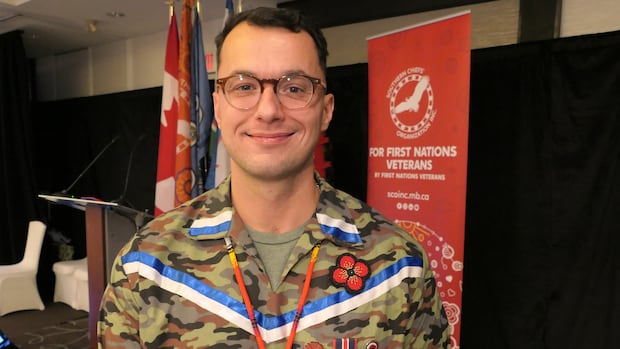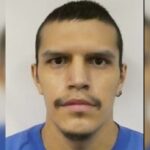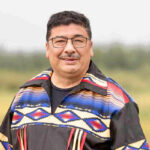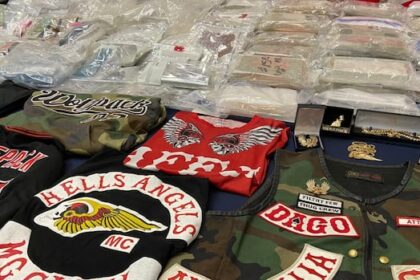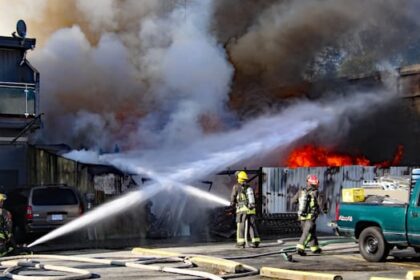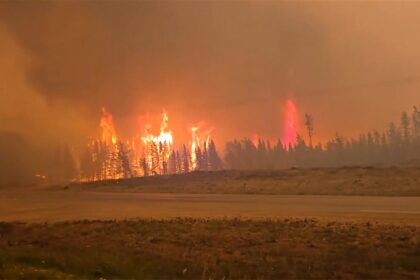ManitobaFirst Nations veterans gathered in Winnipeg for an event Sunday that honoured their service and sacrifice to their country, while also calling on the Canadian Armed Forces to continue taking steps towards reconciliation with Indigenous soldiers and veterans. Southern Chiefs’ Organization hosted 3rd annual First Nations Veterans SummitDave Baxter · CBC News · Posted: Nov 03, 2025 9:17 AM EST | Last Updated: 3 hours agoListen to this articleEstimated 4 minutesJustin Woodcock, a veteran who served in the Canadian Armed Forces, says First Nations soldiers today feel a lot more comfortable embracing and sharing their culture and identity, than he did back in 2009. (Jeff Stapleton/CBC)First Nations veterans gathered Sunday in Winnipeg for an event that honoured their service and sacrifice, while also calling on the Canadian Armed Forces to continue taking steps towards reconciliation.The Southern Chiefs’ Organization (SCO) hosted the third annual First Nations Veterans Summit with this year’s theme being “look how far we’ve come.”Justin Woodcock, a veteran and project manager for SCO, said the theme represents changes he and many others have seen since they first began serving in the military, when it comes to the treatment of First Nations soldiers and veterans.First Nations soldiers today feel a lot more comfortable embracing and sharing their culture and identity than when he first joined the armed forces back in 2009, he said. “It really warms my heart, it’s come a long way. Knowing that you can be who you are and bring your identity with you when you join the Canadian Armed Forces is important,” Woodcock said.He hopes those changes will lead to more First Nations people considering careers in the military.“It shows those young First Nations youth that there is a spot for them in the Canadian Armed Forces and they are accepted for who they are,” he said.The event was also a chance to bring First Nations veterans together under one roof to share their experiences and learn from one another, Woodcock said. “I think it’s really meaningful for a lot of folks,” he said. First Nations veterans and members of their families gathered in Winnipeg on Sunday for the third annual First Nations Veterans Summit hosted by the Southern Chiefs Organization. (Jeff Stapleton/CBC)Woodcock praised the Manitoba government for the recent passing of Bill 210, which now permanently recognizes Nov. 8 as Indigenous Veterans Day in Manitoba.He said he often gets questions about why Indigenous people have their own separate veterans day. “It is to honour that distinct history that First Nations veterans have,” Woodcock said.“Things like the discrimination they received when they returned from World War I and World War II, things like being excluded from the Soldiers Settlement Act, having to give up their status, being excluded from certain Veterans Affairs benefits.”The Canadian Armed Forces officially apologized last week for its role in racial discrimination and harassment it admits current and former Indigenous members have faced, with Chief of the Defence Staff Gen. Jennie Carignan saying Friday “we failed you.”“It’s not going to fix everything,” Woodcock said about the apology. “But it’s a recognition of our lived experience and a validation of what we went through.”And I think that’s really important moving forward towards reconciliation.”The summit featured opening prayers and ceremonies as well as a keynote speech from Master Warrant Officer Robert Brown, the Indigenous advisor to the commander of the Canadian army.For Joseph Maud, being a First Nations veteran is a source of great pride, and he said he appreciates a chance for veterans to gather at events like the one on Sunday. “I just had that thing about serving and defending our freedom, and that’s important,” Maud said.Joseph Maud says being a First Nations veteran is a source of great pride for him, and he appreciates a chance for veterans to gather at events like the third annual First Nations Veterans Summit held on Sunday. (Jeff Stapleton/CBC)He served in the armed forces for six years, first enlisting in 1979, and said he hopes Canadians of all backgrounds realize the contributions First Nations veterans have made to this country. “We want, and I want, our neighbours, our non-Indigenous neighbours, to come and support us because it’s all about freedom and serving.”Maud called last the apology by the Canadian Armed Forces an important step in what he expects will be a long journey towards reconciliation, and asked that Indigenous voices be included in it. “I’ll just say it’s a start,” he said. “I believe veterans such as myself are part of the solution in offering ideas for reconciliation.”ABOUT THE AUTHORDave Baxter is an award-winning reporter and editor currently working for CBC Manitoba. Born and raised in Winnipeg, he has also previously reported for the Winnipeg Sun and the Winnipeg Free Press, as well as several rural Manitoba publications.With files from Gavin Axelrod
Wednesday, 4 Feb 2026
Canada – The Illusion
Search
Have an existing account?
Sign In
© 2022 Foxiz News Network. Ruby Design Company. All Rights Reserved.
You May also Like
- More News:
- history
- Standing Bear Network
- John Gonzalez
- ᐊᔭᐦᑊ ayahp — It happened
- Creation
- Beneath the Water
- Olympic gold medal
- Jim Thorpe
- type O blood
- the bringer of life
- Raven
- Wás’agi
- NoiseCat
- 'Sugarcane'
- The rivers still sing
- ᑲᓂᐸᐏᐟ ᒪᐢᑿ
- ᐅᑳᐤ okâw — We remember
- ᐊᓂᓈᐯᐃᐧᐣ aninâpêwin — Truth
- This is what it means to be human.
- Nokoma


